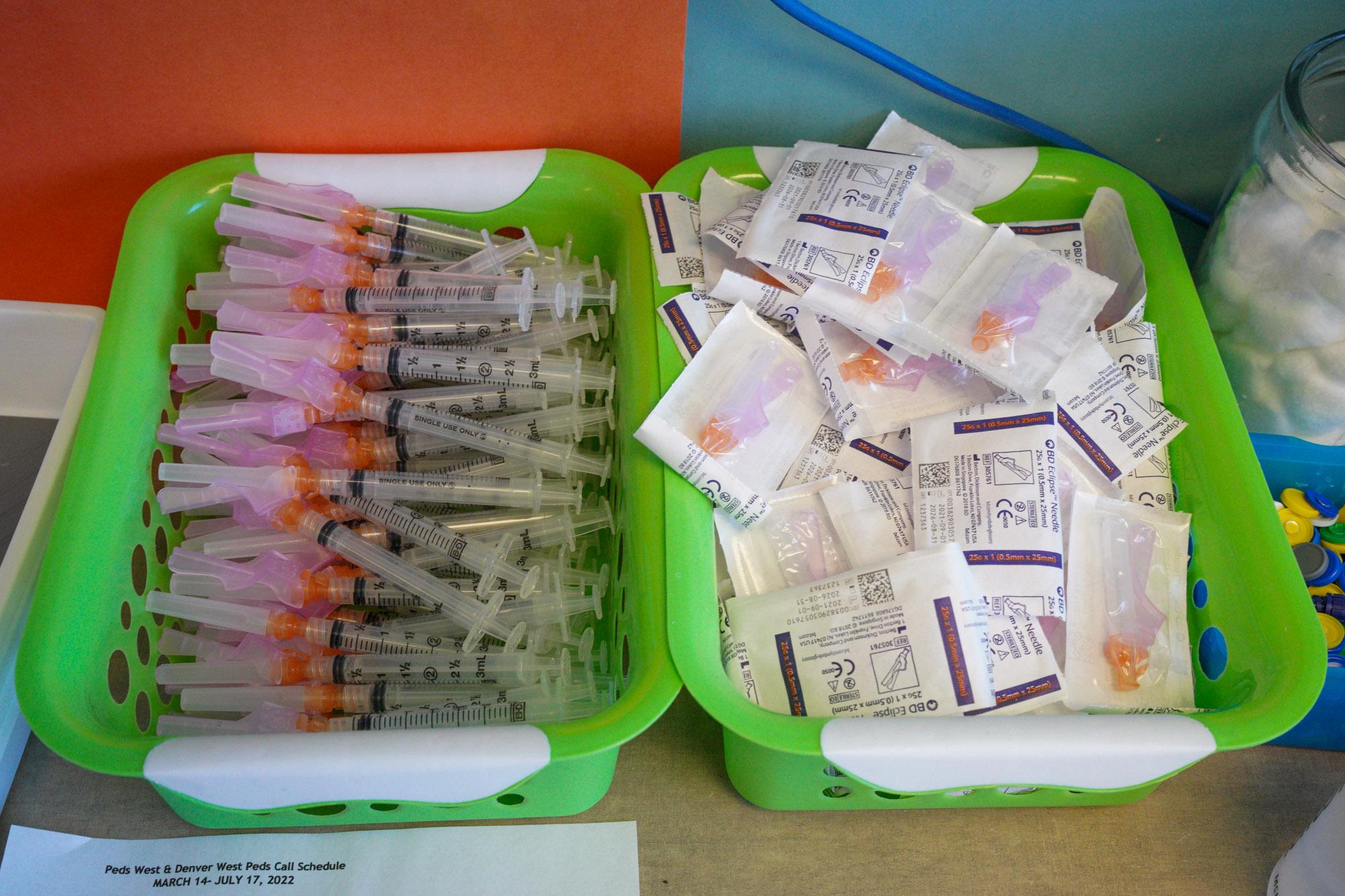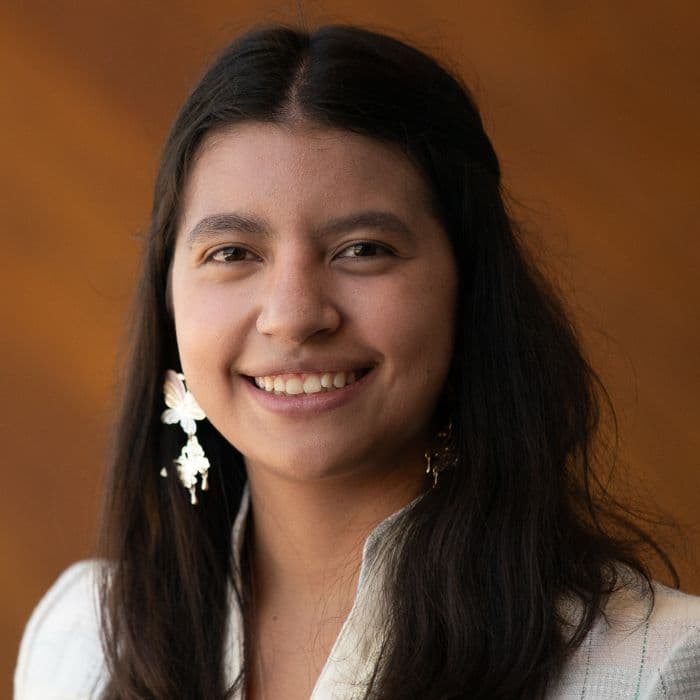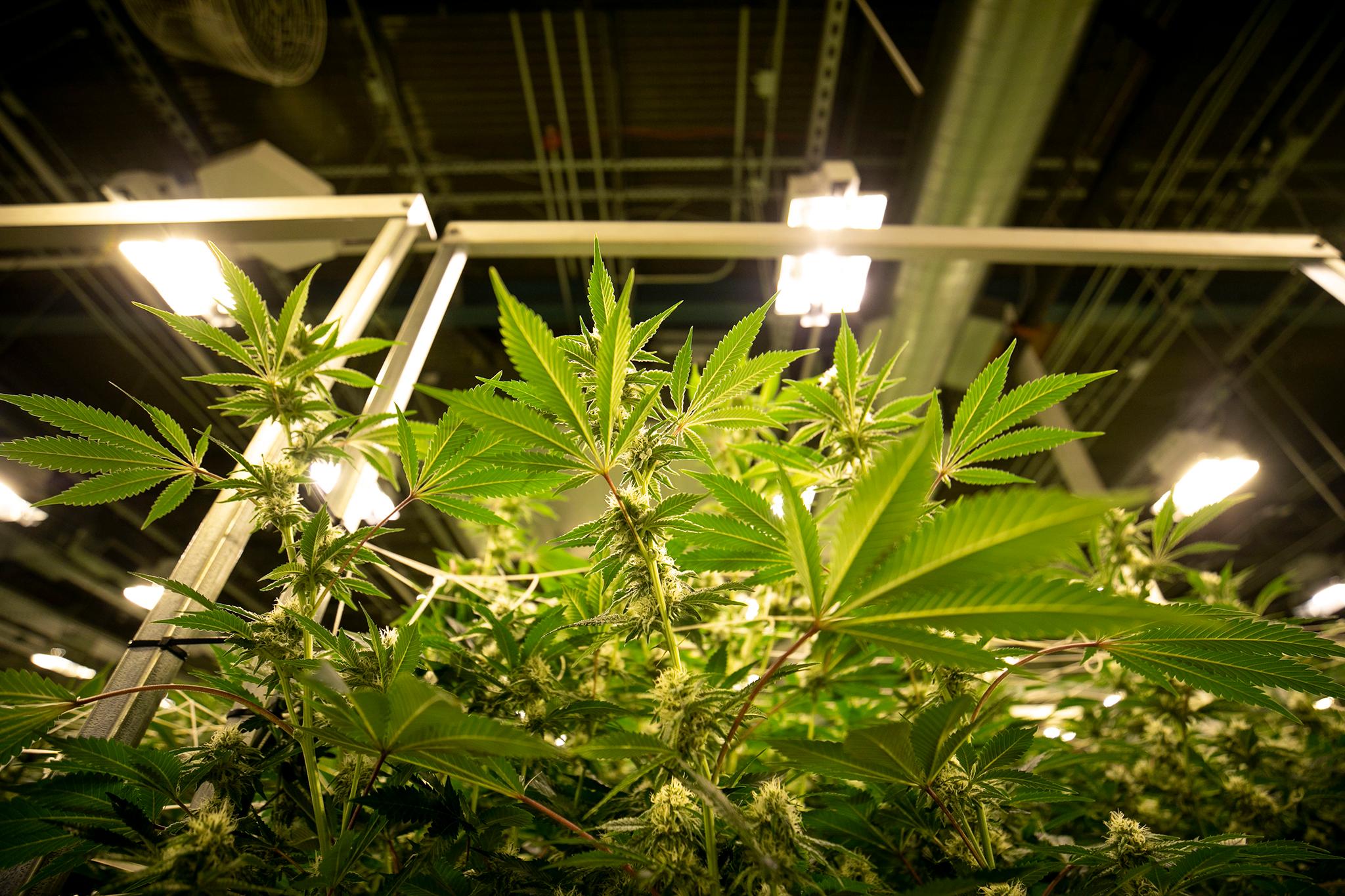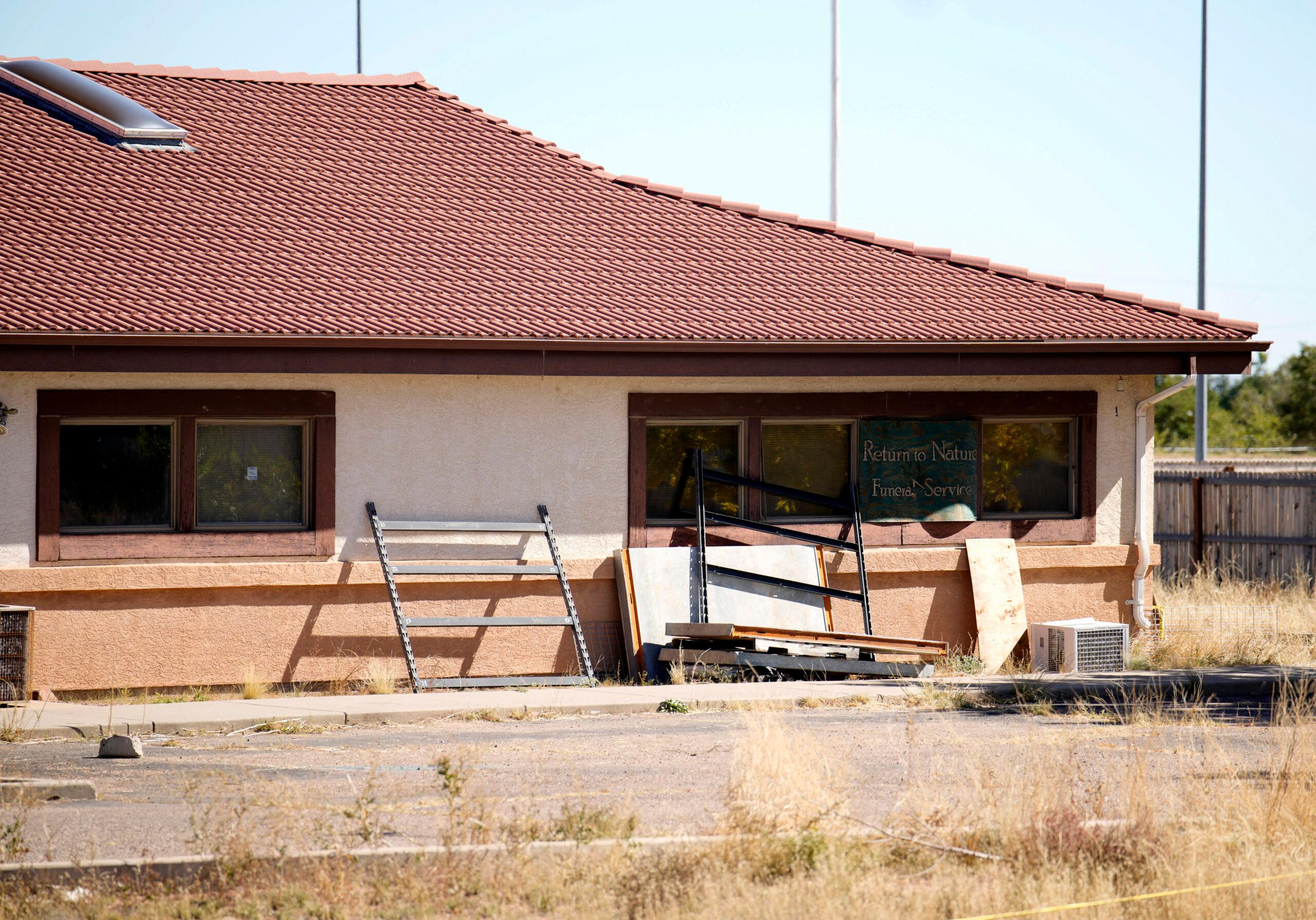
What was once a blighted lot in Denver's Northeast Park Hill neighborhood is now an oasis for family health, food access and care.
Wrapped inside of the 4-acre Dahlia Campus for Health & Well-Being is the region’s largest aquaponics greenhouse, which helps feed the neighborhood fish and greens. You’ll find a 40,000 square foot urban garden, a children’s dental clinic, teaching kitchens, a preschool, and a mental health care center.
There’s also an academic program that takes advantage of those unique offerings found here. Skyline Academy is one of Colorado’s “facility schools,” providing services for K-8 students in residential, day treatment or hospital placement.
The academy's program manager, Sibyl Graham, said their typical student arrives having forgotten “how to be a successful student.”
“If you’re anxious, or if you’re suffering from depression, or if you are having intrusive thoughts because of trauma – it’s really hard to focus on academic material.”
Common diagnoses are ADHD, depression, anxiety, and PTSD for those who’ve experienced trauma. The goal is to get the children stabilized enough to return to their home school. But first, the students learn coping skills and how to be safe – that’s key before they can start learning again.
Skyline’s curriculum then builds on 15 character traits in spacious, specially designed classrooms. Small class sizes, usually three classrooms of eight students each, and the resources at the Dahlia campus afford what education coordinator Tara Butler said are opportunities for “successes they haven’t been able to have in the [traditional] public schools.”
It wasn’t always like this for Skyline. In a lot of ways, their move here and the transformation of the Dahlia Campus for Health & Well-Being mirror each other.
Therapist Carol LaRocque remembers the old school as a cramped, converted office building with a dry play space made of asphalt in University Hills, off Colorado Boulevard.
“We had a little garden, but the environment was not uplifting or rich or engaging and consequently, we didn’t spend that much time outside.”
The campus in Park Hill is what used to be the Dahlia Square shopping center, a source of pride for the community decades ago. It was the largest African-American owned shopping center in the U.S., with groceries, stores, libraries, laundromats, barber shops and restaurants. That’s how 81-year-old Hazel Whitsett, who lives in the senior apartments next door to the center, remembers it.
Then the square fell on hard times.
“We had mattresses, wine bottles, people were starting to use it as a dump… it was an eyesore,” Whitsett said.

With the center in disrepair, the city razed the lot. Promises to clean it up were broken. When Dr. Lydia Prado, vice president of child and family services at the Mental Health Center of Denver, approached the community about a mental health center, she heard terse words and was then shown the door. People told her “you’re bringing in a lockdown facility,” Prado recalls.
One block leader allowed her to present the kernels of her plan to his group as long as she didn’t use the words “mental health.” A stand-alone mental health facility didn’t resonate with the community.
Prado met with the community for nearly three years, listening until she understood their concerns: they were afraid and carried misperceptions and stereotypes about “crazy people.” Finally, Prado had a chance to explain that patients were just people in the community. Then she finally got to ask residents her burning question.
“What would promote your health and well-being and the health and well-being of your children? Because that’s the conversation I want to have next,” she recalls.
Healthy food was a top response, residents lived in a food desert with no nearby supermarkets that provided fresh fruit and vegetables and healthy protein. They wanted a preschool and cooking classes, to learn things like how to read labels and shop on a budget. They wanted to know the latest in child development research about raising children.
They talked about everything, Prado said, like “what do we know about sunlight, open spaces, beauty, sadness, grief, hopelessness, and how we feel when other people have access to things and you don’t.”

The gardens and farm help reinforce the link between healthy nutrition and positive mental health, Prado said. They’re also a part of the work done at Skyline, where horticultural therapy joins their individual, family, group, art, music therapies.
Therapist Carol LaRocque works a lot in the garden with the students on their therapeutic goals, like mood and impulse control. There’s a limit to how much students can talk about problems or difficult memories, she said. But she helps them become aware of their sense perceptions and work through issues in a physical and emotional way.
“If they come away understanding when I feel such and such emotion and I walk, play with the fidget tool, go outside and dig in the garden, take a deep breath, write in my journal – whatever their coping skill are — then I feel better and I feel more able to return to whatever it is I was hoping to be doing in the first place. All that can come together in the garden.”
The community has now embraced the Dahlia center. Hazel Whitsett volunteers in a suicide prevention and art program for teen girls, Voz y Corazon. It's her way to help rebuild lives and her neighborhood.
“It’s a calming place to be, to grow, to understand, to get fresh vegetables, to get the fish, to be a part of how all of that works into providing mental health for a community,” she said.
What the community gets from the center, Skyline’s students get as well. LaRocque follows along with the garden metaphors.
“The hopefulness and intention of seed starting and the nurturance and care of just showing up every week to water these plants,” she explained. “By the end of the season you can pick everything and make a salsa out of it and it’s good. And they did it not because they were academic powerhouses, or superstars at athletics but because they put in the hard work.”









